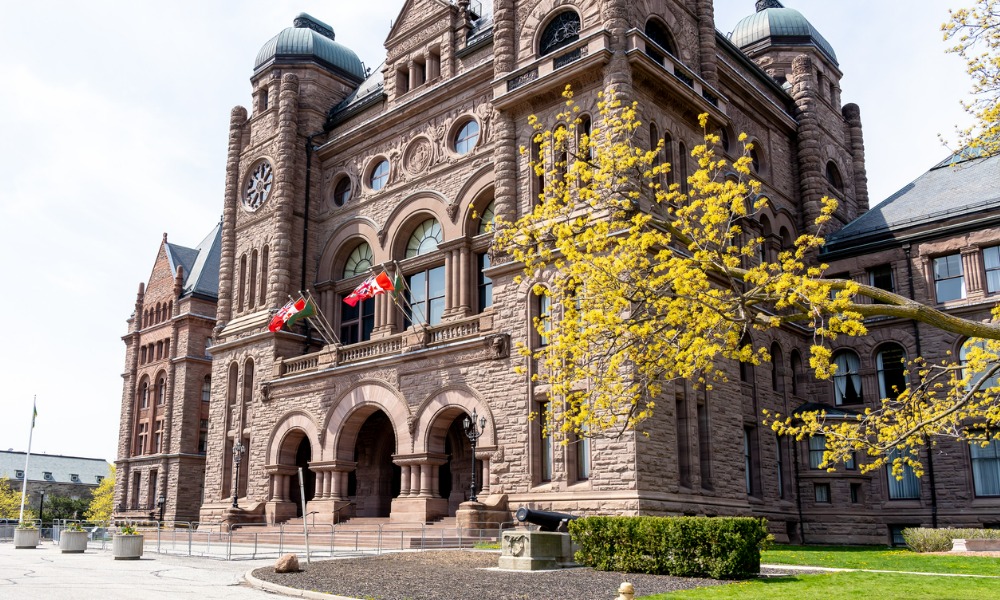‘Working people deserve a seat at the table and to have meaningful input into the decisions that will shape their futures’

An Ontario union is criticizing the makeup of a committee formed by the Ontario government focused on economic recovery.
The Ontario Federation of Labour (OFL) is calling for a halt to the Ontario Workforce Recovery Advisory Committee (OWRAC), saying that it is “deeply flawed”.
Monte McNaughton, minister of labour, training and skills development, recently established the OWRAC to provide recommendations to shape the future of work in the province. The committee’s mandate is to provide recommendations on how to position Ontario as the best place in North America to recruit, retain and reward workers. Its focus is on economic recovery, strengthening Ontario’s competitive position and supporting workers.
The committee will lead consultations and report back to the minister with their policy recommendations.
However, the OFL says the group lacks representation from labour, workers, or labour and employment law experts, despite having experts from other fields.
“The committee’s makeup and its consultation process are fundamentally flawed. The process must be immediately halted, and the committee must be reconstituted,” says Patty Coates, OFL president. “Working people deserve a seat at the table and to have meaningful input into the decisions that will shape their futures. We are calling on the government to put the brakes on this deeply flawed consultation process and to authentically and meaningfully engage with working people and their representatives.”
The fact that the Ontario government struck a panel on the future of labour and employment law and didn’t invite a representative from the labour movement but included bankers “says everything you need to know about this committee,” tweeted David Doorey, a law professor at York University in Toronto. “Frankly, [it’s] a weird decision by the Tories.”
Rubber stamp?
OFL also notes that the creation of the OWRAC follows Uber’s “Flexible Work+” proposal. Uber proposed rules requiring gig companies to provide “self-directed benefits” to their drivers based only on hours driving and certain unspecified additional safety training and tools.
“Given the rushed and deeply flawed nature of the consultation process, we can only conclude that the [Doug] Ford government is using this sham process to rubber-stamp the carve-outs from workers’ rights that Uber is lobbying for,” says Coates. “Ontario’s labour movement stands united with gig workers against a Proposition 22-style plan to take away their rights at work.”
Several stakeholders have previously criticized Uber’s pitch. The OFL adds that Uber’s proposed changes would deny gig workers core protections afforded to employees in Ontario like the minimum wage, overtime pay, and paid sick days.
Instead of taking away these workers’ rights, the OFL is calling on the Ontario government to take action to proactively enforce gig workers’ rights, and to clarify their status as employees.
“App-based gig workers deserve the same rights as all other employees – full stop,” said Coates. “The Ontario government should enforce the laws already on the books to protect gig workers, and should follow the lead of courts and governments around the world and confirm that gig workers are employees and entitled to basic employment protections. Any calls to carve these workers out of their employment protections must be soundly rejected.”
Comments welcome
The committee will lead consultations and deliver a report with recommendations that address the complexities and opportunities caused or accelerated by the COVID-19covid 19 pandemic, according to the government, including:
- changes in technology
- the growth of work-from-anywhere employment
- the significance of skills development in the global labour market
The recommendations on the future of work will focus on three pillars:
- Economic recovery: How to make Ontario the top jurisdiction with a world-class workforce and talent supply
- Strengthening Ontario’s competitive position: In an increasingly remote, global and technologically advanced economy, how will we ensure that Ontario remains the best place in North America to recruit, retain, and reward workers?
- Supporting workers: How to ensure Ontario’s technology platform workers benefit from flexibility, control, and security
The deadline for input is July 31.
Recently, Ontario announced it is investing $7.7 million through 19 programs to help immigrants impacted by the COVID-19 pandemic start new careers. It also announced a $7-million investment for the training and paid job placements of workers belonging to underrepresented groups in the automotive manufacturing sector.




